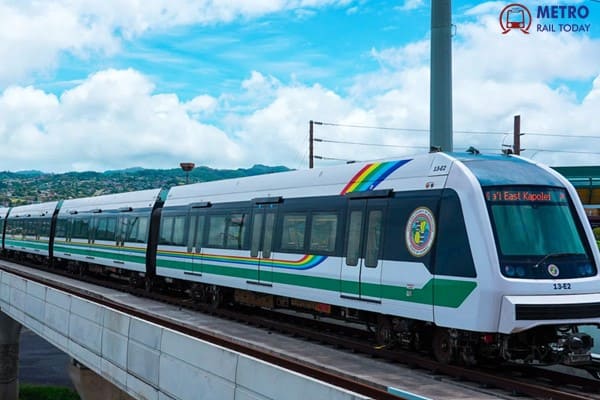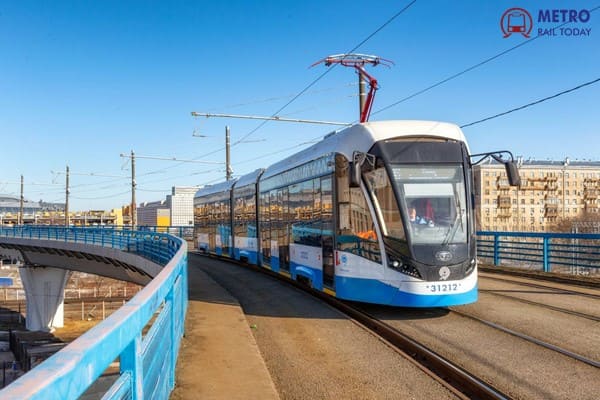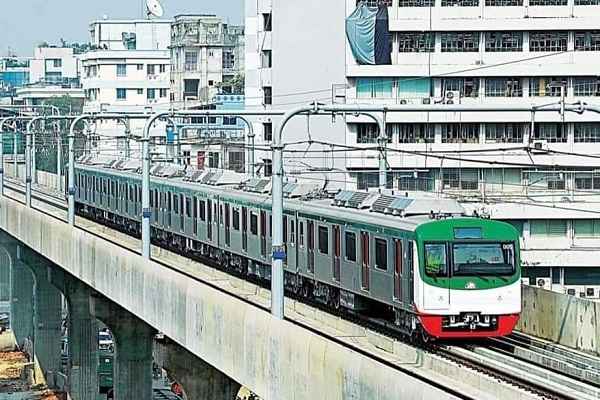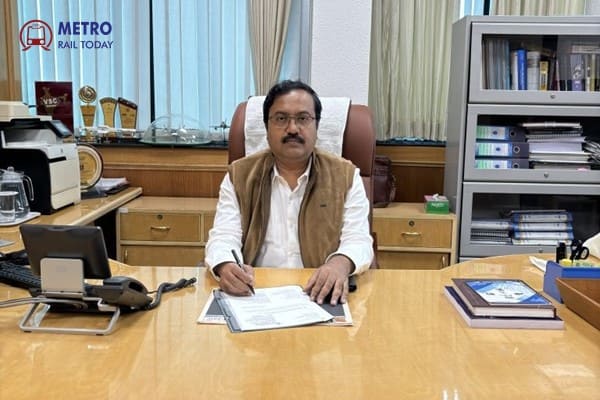 Nilabhra Sengupta appointed as new Commissioner of Metro Railway Safety (CMRS)
Nilabhra Sengupta appointed as new Commissioner of Metro Railway Safety (CMRS) Maharashtra approves India’s First Pod Taxi connecting Thane, Navi Mumbai & Mira-Bhayandar
Maharashtra approves India’s First Pod Taxi connecting Thane, Navi Mumbai & Mira-Bhayandar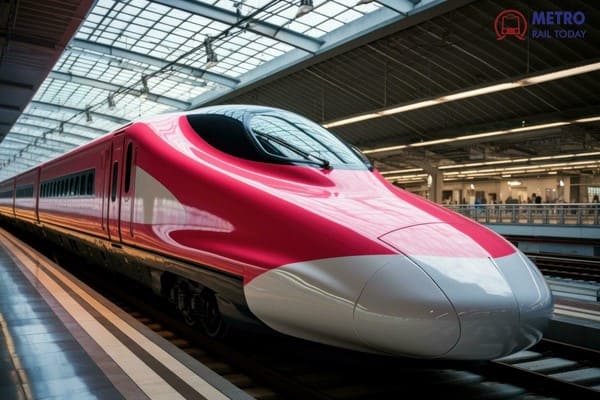 PM Narendra Modi reviews progress of Mumbai–Ahmedabad Bullet Train Project in Surat
PM Narendra Modi reviews progress of Mumbai–Ahmedabad Bullet Train Project in Surat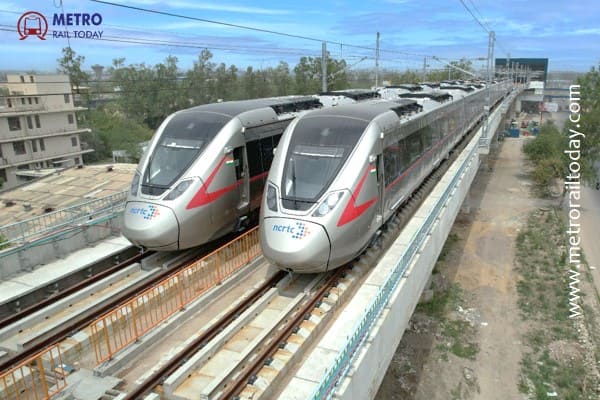 Public Investment Board approves two new RRTS corridors worth ₹65,000 crore
Public Investment Board approves two new RRTS corridors worth ₹65,000 crore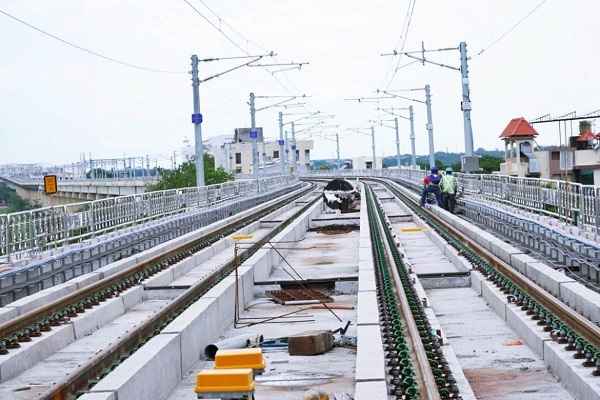 Texmaco Rail bags Track Work Contract for three key corridors of Delhi Metro Rail Project
Texmaco Rail bags Track Work Contract for three key corridors of Delhi Metro Rail Project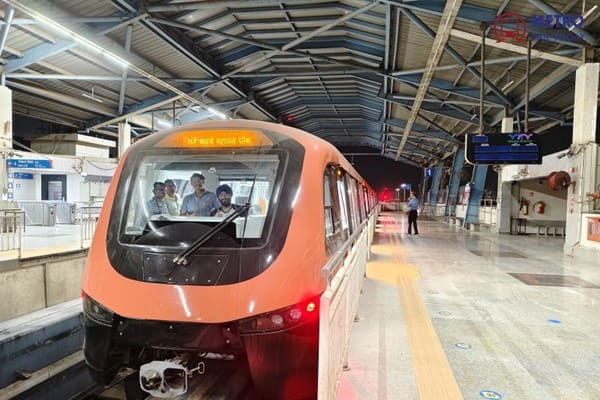 Four Firms Submit Bids for ₹297 Crore O&M Contract of Mumbai Monorail
Four Firms Submit Bids for ₹297 Crore O&M Contract of Mumbai Monorail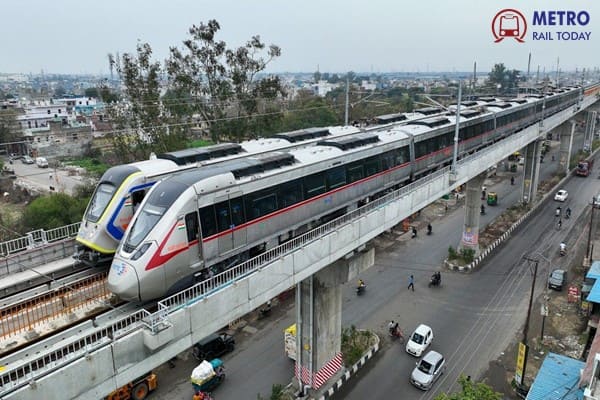 NCRTC installs India’s First “Solar on Track” in a Metro or RRTS System
NCRTC installs India’s First “Solar on Track” in a Metro or RRTS System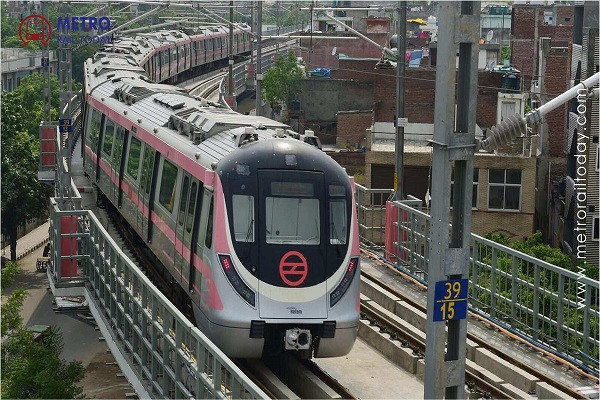 Delhi Metro to expand 450 km network by 2027, Take 10.9 lakh Vehicles Off Roads Daily by 2031
Delhi Metro to expand 450 km network by 2027, Take 10.9 lakh Vehicles Off Roads Daily by 2031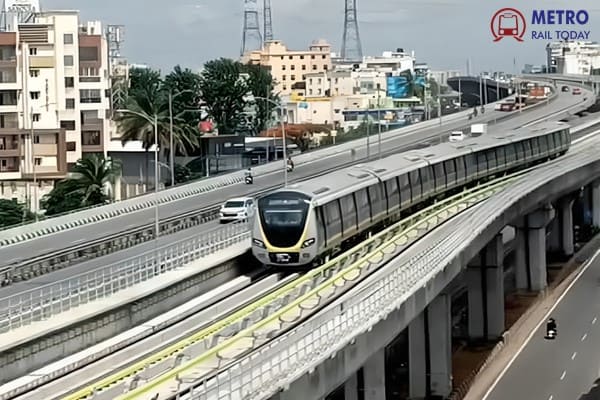 Hitachi Rail bags Automatic Fare Collection System Contract for Bangalore Metro Phase 2
Hitachi Rail bags Automatic Fare Collection System Contract for Bangalore Metro Phase 2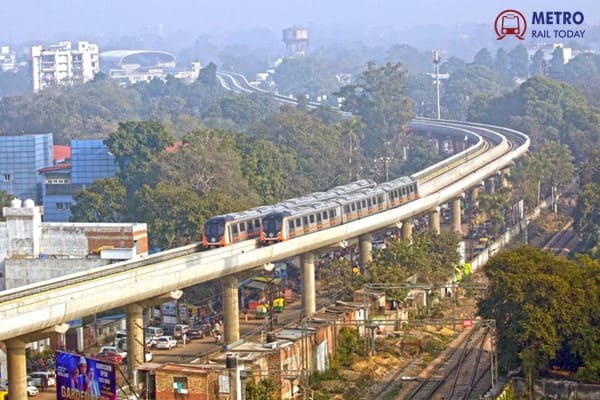 Efkon India bags ₹164 crore contract for Electrical & Mechanical works of Kanpur Metro Line 2
Efkon India bags ₹164 crore contract for Electrical & Mechanical works of Kanpur Metro Line 2
Dubai RTA sets five strategic priorities to strengthen Smart Mobility and Infrastructure Growth
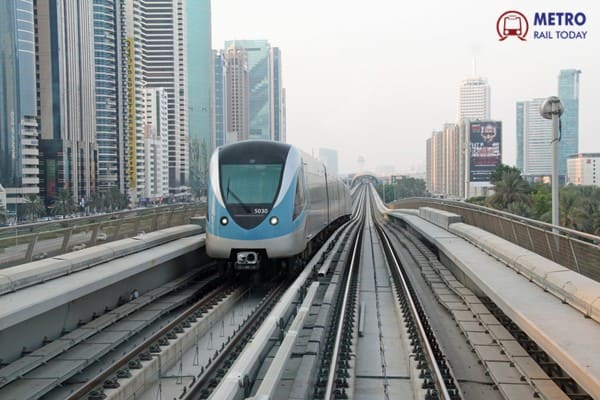
Dubai, UAE (Metro Rail Today): The Dubai Roads and Transport Authority (RTA) has unveiled its five key strategic priorities to drive the next phase of urban mobility and infrastructure development in the emirate. The roadmap, announced as RTA celebrates its 20th anniversary, focuses on talent development, smart infrastructure, autonomous transport, economic innovation, and public-private partnerships — all aligned with Dubai’s Economic Agenda D33 and the city’s vision for sustainable, technology-driven urban growth.
Over the past 20 years, RTA has invested Dh175 billion ($47.6 billion) in developing world-class infrastructure — including metro lines, trams, expressways, cycling tracks, and pedestrian networks.
Dubai’s road network now stretches over 25,000 km, accommodating 3.5 million vehicles daily, while the Dubai Metro and Tram together span over 100 km.
The number of bridges and tunnels has increased nearly sevenfold — from 26 in 2006 to 177 in 2024 — underscoring the city’s rapid progress in urban mobility engineering.
“We have built an integrated infrastructure of road networks and public transport systems that has strengthened Dubai’s global competitiveness and enhanced the quality of life across the emirate,” said Mattar Al Tayer, Director General of RTA.
Expanding Public Transport: Metro Blue Line and Etihad Rail Integration
Looking ahead, RTA aims to expand and enhance public transport accessibility across the emirate:
-
Dubai Metro Blue Line:
Scheduled to begin operations in 2029, this new line will connect the fast-growing areas of Mirdif and Dubai Creek Harbour, featuring an underground interconnector at International City to serve Dragon Mart and nearby communities. -
Etihad Rail Connectivity:
A new Etihad Rail station is planned at Jumeirah Golf Estates, with interlinks to Dubai’s metro and bus networks, strengthening regional connectivity between Abu Dhabi and Dubai via a high-speed railway. -
Bus Network Upgrades:
RTA continues to enhance its bus routes, schedules, and interchange facilities, ensuring efficient first- and last-mile connectivity for commuters.
To improve urban livability, Dubai is transforming into a “year-round pedestrian-friendly city.”
Plans include:
-
3,000 km of new pedestrian paths,
-
110 new bridges and tunnels, and
-
Shaded cycleways promoting micro-mobility and active travel.
These initiatives align with Dubai’s sustainability goals and the Dubai 2040 Urban Master Plan, which targets a population of 5.8 million by 2040.
Mega Projects Powering Dubai’s Growth
Several upcoming infrastructure projects will shape Dubai’s economic and mobility landscape:
-
Al Maktoum International Airport: A second runway and major expansion phase by 2032 will raise annual capacity to 150 million passengers.
-
Dubai Exhibition Centre (Expo City): A Dh10 billion expansion will create the largest indoor conference venue in the Middle East, enabling Dubai to host 600 global events annually by 2033.
These developments form a core component of Dubai’s Economic Agenda D33, which aims to double the emirate’s economy between 2023 and 2033.
Mrs. Mamta Shah, MD & CEO of Urban Infra Group and Managing Editor of Metro Rail Today, commended RTA’s forward-looking strategy:
“Dubai’s commitment to innovation-driven mobility sets a global benchmark for sustainable urban growth. The RTA’s integrated approach — blending smart infrastructure, autonomous systems, and climate-conscious design — exemplifies how modern cities can balance technology with human-centric urban planning. Dubai’s next decade of mobility development will redefine how the world envisions intelligent transport ecosystems.”
A Vision for 2040 and Beyond
As Dubai continues to position itself as a leader in smart mobility and sustainable infrastructure, RTA’s strategic plan will play a pivotal role in shaping a city that is connected, inclusive, and future-ready.
With a clear focus on innovation and global collaboration, Dubai’s transport infrastructure stands as a model for next-generation urban transformation across the Middle East and beyond.





